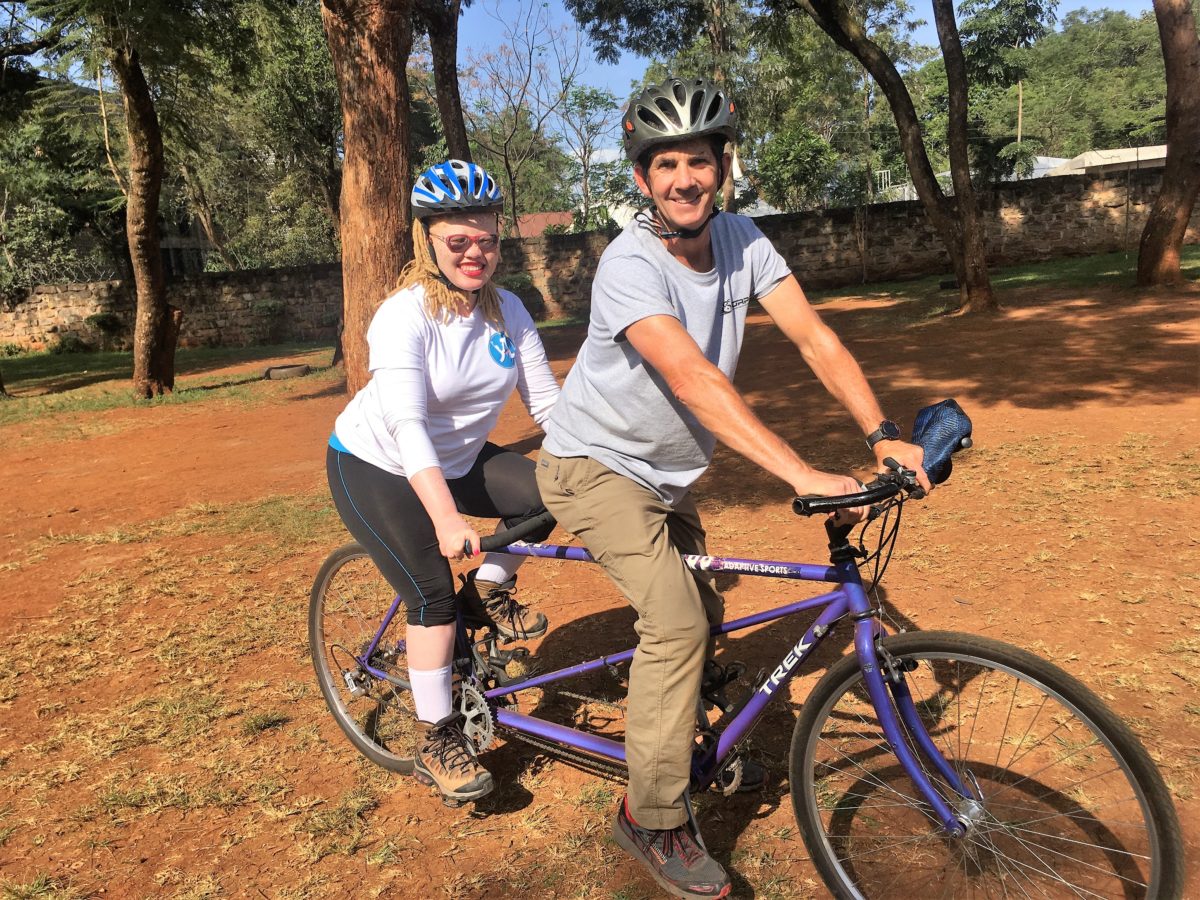Creating a Pathway to Success Through Adaptive Cycling
Greg Milano worked as the Cycling Program Manager for BORP Adaptive Sports, a disability sports organization based in Berkeley, California. Catalyzed by his Reciprocal Exchange experience in Kenya, Greg returned to the United States with reignited commitments to disability rights and his connection to Africa. Greg merged these two passions and co-founded Inclusive Cycling International, where he now serves as Executive Director and furthers his organization’s mission of expanding the fast-growing cycling community by providing people with disabilities access to the learning opportunities unique to sports.
Throughout 2020, we will be highlighting the stories of Fellowship Alumni with disabilities and working in disability rights, like Greg, on our website and social media in honor of the 30th Anniversary of the Americans with Disabilities Act (ADA).
At the 2019 Mandela Washington Fellowship Summit, we had the opportunity to sit down with Greg and discuss his work with Inclusive Cycling and his Reciprocal Exchange experience. The content of the interview has been slightly edited for clarity.
While we are focusing on doing community projects for lower-income communities, we are also creating a market for people to purchase these products.”
Greg Milano, Reciprocal Exchange Participant

Can you tell us about your Reciprocal Exchange project?
I have completed two Reciprocal Exchanges with similar objectives and structure. In 2018, I worked with 2015 Mandela Washington Fellow Jane Waithera Wairimu in Nairobi, Kenya. Jane is a woman who has albinism and visual impairment, and her main focus is working on the rights of people with albinism, though she has a real interest in general disability rights work as well. The project that Jane and I did in Nairobi was to donate six adaptive bicycles to a school that specifically serves children with disabilities. We trained the teachers to be trainers who could, in turn, train the students to use the bikes safely, maintain the bikes, and use the bikes with each other. We also were able to train some of the students to have similar leadership roles.
In 2019, I collaborated with 2016 Mandela Washington Fellow Temitope Oluwaseun Okupe in Lagos, Nigeria on a similar project. The main difference is that we trained staff and youth from a community organization in a low-income neighborhood of Lagos, and they are currently bringing the bikes and providing the activities at several schools that have “Inclusion Units,” which integrate youth with disabilities into mainstream schools.
Where did the adaptive bikes come from?
Disability rights is, in some ways, an amazing American export. Berkeley, California, where I’ve worked for many years, was one of the birthplaces of the disability rights movement, and it became a national law with the passage of the Americans with Disabilities Act (ADA). Now, it is spreading around the world.
One of the results of this is that a lot of the equipment for disability sports is still manufactured in the United States. So, the bikes that we are using in our projects are all manufactured in the United States. The ones we specifically brought to Kenya for the exchange were donated bikes – they were bikes donated either by the manufacturers or by people who had outgrown them or didn’t need them anymore.
The work that we are doing, even though it is centered around cycling and recreation, is really about developing life skills and opportunities and contributing to a pathway to success for people with disabilities.”
Greg Milano, Reciprocal Exchange Participant
How has your Reciprocal Exchange experience affected you professionally?
Before I was exposed to the Fellowship and had the opportunity to do a Reciprocal Exchange in Kenya, my work internationally in this field was just sort of a part-time passion. I worked domestically doing this work in the United States, but the international projects were almost a hobby. After being exposed to the incredible people that all of these Fellows are and then seeing the power of this project in Nairobi, it has motivated me to quit my full-time job and make international projects my full-time vocation.
Have there been any new streams of revenue as a result of this?
One of the most exciting things about the inclusive cycling projects is that we are providing a program that benefits the community, and in many ways, benefits a low-income segment of the community. At the same time, we are discovering there are people in all of these countries who have money, who can afford to purchase these products, who have disabilities or who have children who have disabilities. We’ve seen that while we are focusing on doing these community projects for lower-income communities, we are also creating a market for people to purchase these products.
Since the project in Nairobi, I’ve exported three adaptive bikes to citizens of Kenya for their children, and all of those bikes were made in the United States. Maybe more significantly, the visibility of these projects is helping us raise funds from more donors for future nonprofit projects.
Can you tell us about why the work that Inclusive Cycling International does is important?
Even though what we do is sports, it’s not just about sports. Kids without disabilities get opportunities to play sports, even if they are not planning to be professional athletes. They learn leadership, learn teamwork, and learn that if you practice something, you get better at it. These are all incredible life skill lessons that kids with disabilities often don’t get the opportunity to learn through sports. The work that we are doing, even though it is centered around cycling and recreation, is really about developing life skills and opportunities and contributing to a pathway to success for people with disabilities.
As told to Alison Boland-Reeves. Edited by Trace Olson and Abbie Wade.
Next Story
Adams Cassinga
2017 Fellowship Alumnus, DRC